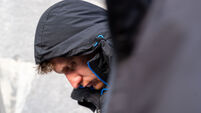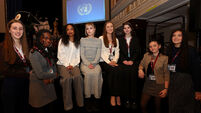‘Elevating early years teaching to status of primary education long overdue’: 2,768 kids on Cork crèche waiting lists

Cork is short thousands of crèche places, but treating the services and their staff like schools and school teachers would solve a lot of the problems in the sector according to Early Childhood Ireland.
Cork is short thousands of crèche places, but treating the services and their staff like schools and school teachers would solve a lot of the problems in the sector according to Early Childhood Ireland.
2,768 children under the age of three are on the waiting list for a crèche place in Cork according to latest data.
With just 344 places available across the county, this leaves Cork as many as 2,424 places short.
The data is compiled by Pobal, who cautioned that waiting lists are not in operation in all services, but also an individual child may be on multiple waiting lists in different services.
There are 534 children under the age of one on crèche waiting lists in Cork and just 17 places available for them, a shortage of 517.
Additionally, there are 1,124 children aged 1 to 2 on waiting lists and just 36 places available, a shortage of 1,088 places, and 1,110 children aged 2 to 3 on waiting lists with just 291 places available — a shortage of 819.
Early Childhood Ireland’s director of policy, Frances Byrne, told The Echo that there are different problems in rural and in urban areas, including smaller services not being profitable to run, leaving children in the countryside having to travel further away.
In cities, there are often not enough places to account for population growth, and though planning laws require creches to be built along with housing estates, further collaboration between agencies is necessary, she said.
“Nobody is required to talk to the Department of Children about how to kit out this creche, who’s going to pay for it — creches are being built in housing estates but left empty because nobody has the resources to open it,” she claimed.
Ms Byrne said that valuing creches to the same extent as schools would solve a lot of problems.
“The raison d’etre of the current and next government needs to be elevating early years to the status of primary education — it’s long overdue and it’s already the case in other counties.”
The organisation, in its pre-budget submission, has called for a date to be set by the Government for bringing Early Years and School Age Care graduates within public sector pay and conditions, in line with teachers.
Ms Byrne explained: “The biggest challenge facing our 366 member settings based in communities across Cork is the recruitment and retention of staff, and any other challenges then have a knock on effect on staffing.”
At the moment, graduates are leaving full- time education with an equivalent qualification to teachers, “but their pay can be less than half of teachers” she said, explaining that maternity pay, pensions etc should all be brought in for early years staff also, as currently many are working “in between” the public and private sector.
Promising the same wages and benefits would entice staff to work in the sector and stay there, she said. “If the Government can name a date, even three or four years away, that would be transformative for our members.”
Additionally, proper planning is key: “We know how many children are born in Cork every year, the Department of Education looks at where babies are born and they plan accordingly but we are not seeing that in our sector,” Ms Byrne said.
“There has been progress recently, a Workforce Plan, Childminding Action Plan, and new funding models which are all really welcome, but we’re still way behind our European contemporaries.
“That’s all manifested in very high fees, long waiting lists, parents under huge pressure, providers under huge pressure too, and staff thinking they can’t make a career out of this even if they really want to.”







 App?
App?


